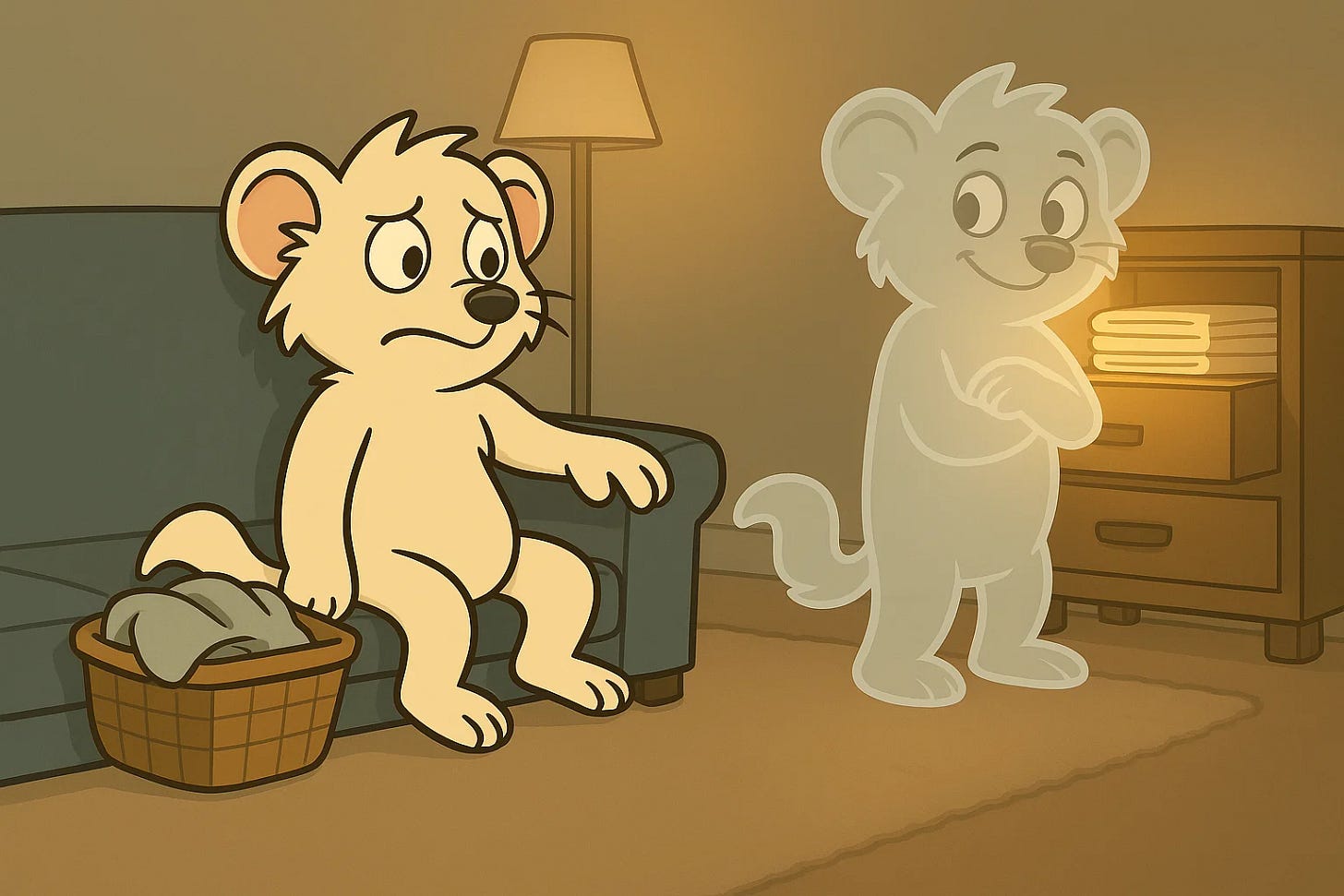Why you procrastinate (and how to flip the script)
Your brain is just focused on the wrong thing.
You sit on the couch staring at the laundry basket.
Your brain immediately starts cataloging everything that's wrong with this task: "I'll have to figure out which shirts need to be hung up, then find matching socks in that tangled mess, then put everything in the right drawers, and what if I fold things wrong and they get wrinkled again?" You tell yourself you'll do it later. Then later turns into tomorrow, and tomorrow turns into guilt.
But picture something different. Imagine opening your drawer tomorrow morning and pulling out fresh, folded clothes without the scramble. Walking into your bedroom and seeing clear surfaces instead of clothing chaos. That’s the outcome your brain craves, but we usually get stuck cataloging what’s hard instead of savoring the payoff.
When you learn to shift your focus toward the reward, the whole task feels lighter. Your brain releases dopamine, the motivation chemical, and suddenly the climb isn't as steep.
The difference between getting stuck and getting started
When you think about planning a road trip, what comes to mind first? The scenic views you'll see along the way? The excitement on your kids' faces when they spot that roadside attraction? The laughter over terrible gas station snacks that become the best memories?
Or does your ADHD brain immediately jump to the logistical nightmare: "I need to book hotels, plan the route, pack for everyone, what if we forget someone's medication, what if the car breaks down, what about all that traffic, and oh god the bathroom stops every twenty minutes..."
Most of us get stuck in the second mode. We focus on everything that could go wrong or everything we have to manage, and suddenly the whole idea feels overwhelming instead of exciting. But when you flip it and think about the outcome first, your family bonding over silly car games, discovering that perfect little diner, coming home with stories you'll tell for years, suddenly planning feels possible. Same trip, completely different mental experience.
Your brain literally needs the promise of reward to generate enough motivation chemicals to begin.
Big goals work the same way
Most of us sabotage ourselves before we even start because we're thinking about the wrong thing. We want to get healthier but immediately picture sweaty workouts and saying no to pizza. We think about organizing the house and see hours of sorting through junk. We consider that career change and focus on all the networking and resume updating required.
But what if instead we pictured how we'll feel when we have energy to play with our kids after work? Or the peace of walking into a tidy living room? Or the excitement of actually liking our job?
The daily actions become stepping stones toward something we want instead of just more things we "should" do. This gets easier with practice. The more you catch yourself thinking effort-first and redirect to outcome-first, the more automatic it becomes. You're building new neural pathways that default to motivation instead of resistance.



